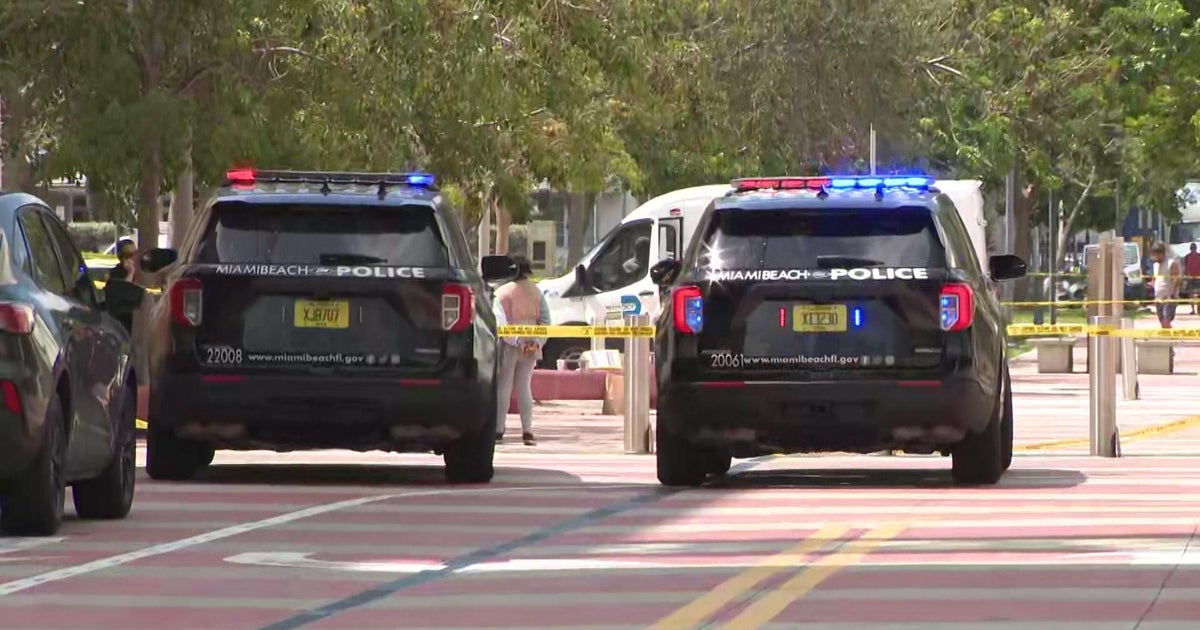Coral Gables 'Citizen Scientist' Finds Rare Bat Nest
CORAL GABLES (CBSMiami/AP) - In September, a brigade of citizen scientists combed through the Coral Gables golf course using smarts phones and iPads to detect the high-frequency calls of the rare Florida bonneted bat.
The volunteers went home empty handed, but their story didn't end there. One morning a lone dog walker heard a bat call coming from a nearby house.
The first documented Southeast Florida roost was found tucked in between barrel tiles on the roof of a rundown vacant home just a block from the course, wildlife officials said.
"As soon as I saw it I knew right away how significant it was," said nurse Ingrid Navas.
Navas is part of the Bat Squad, a team of volunteer citizen scientists enlisted by Florida International University biologist Kirsten Bohn.
"It's like the greatest story ever," said Bohn, who has traveled the world studying bats and started researching the Gables colony after moving to the neighborhood in December 2012.
Bohn confirmed the bats were indeed the trumpet-eared endangered Eumops, which number in the hundreds. She immediately contacted U.S. Fish and Wildlife officials following the discovery.
The agency has been trying to reach the house's owners to alert them of the rare find, said wildlife biologist Paula Halupa.
"The best scenario would be that the owner wouldn't mind having bats in their roof," Halupa said.
The property owner did not respond to a message left with a business associate.
For years researchers knew the bats foraged around Granada Golf Course, but could never find a roost, said wildlife veterinarian Frank Ridgely, the research and conservation director at Zoo Miami. Traditionally, these bats fly low and only roost in numbers of four to eight, which makes it harder for researchers to find and study them, Ridgely said.
"The population around the golf course just kind of baffles us," Ridgely said. "They're using the golf course, surrounded by urban sprawl and somehow they're existing there and persisting for a long time."
The roost is a significant find for Bohn and other scientist, who can now study the bats' urban living habits. They can research things such as the bats' guano to determine what bugs they eat, mating habits and how long juveniles nest. The urban roost might also tell biologists what to look for in other developed areas.
"They love golf courses. But it may be that they love golf courses because that's the only (open) thing left," Halupa said. "They can't turn very easily so they need open spaces."
Up until now, bonneted bat roosts have only been found in a handful of rural settings. In 1979, a small group was found roosting in a wildlife management area in Punta Gorda. Another colony lives in backyard bat houses in Lee County.
Bohn said the Bat Squad, aided by Bacardi Rum, has expanded from about 80 to 200. Her idea is to unleash these bat men and women to Fairchild Tropical Garden and Kendall Indian Hammocks Park, where bats have been reportedly spotted, as well as Cutler Bay and possibly the Deering Estate.
Bohn and a group of FIU professors have been developing an app that would let volunteers record bat calls and locations to better compile data.
"It's an exciting time for the bonneted bat," Halupa said. "The fact that a volunteer found (the roost), that's just an amazing thing. We need more of that, more citizen scientists."
(TM and © Copyright 2014 CBS Radio Inc. and its relevant subsidiaries. CBS RADIO and EYE Logo TM and Copyright 2014 CBS Broadcasting Inc. Used under license. All Rights Reserved. This material may not be published, broadcast, rewritten, or redistributed. The Associated Press contributed to this report.)
RELATED CONTENT:



